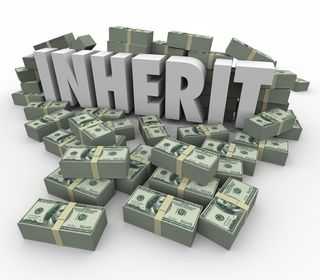

US News & World Report's recent article, "What to Do When You Get an Inheritance,"reminds us that even though there's no "one-size-fits-all" plan, there are several items you should consider before putting money into the stock market.
First, get good information and consider assistance from an expert: speak with an experienced estate planning attorney, one who worked with those giving the inheritance. Heirs should find a CERTIFIED FINANCIAL PLANNER™ practitioner who works for a registered investment advisor with a fiduciary duty to their clients. They aren't commissioned salespeople.
If the inheritance involves a larger sum, it can be administered via a trust that needs to be funded properly due to tax ramifications and expenses.
For heirs in their 50s or 60s who inherit a portfolio from octogenarian parents, they should assess the portfolio's appropriateness. Then it becomes a basic financial planning exercise based on an heir's risk profile, financial goals, tax bracket and retirement target. Pay off debt and start saving before thinking about investing in the stock market.
There's no investment one can make, short of taking on substantial risk, which will earn as much as the 16% some may be paying on credit card debt. After paying off credit card debt, look at other debt, like high-interest college loans. Paying off loans is like earning a risk-free rate equal to the interest rate on the loan. You can also pay down a mortgage, but many folks have already refinanced at an attractive rate, given the low interest-rates.
Next, establish savings. Depending on how secure a person's job is, keep an emergency fund of three to six months of living expenses in a savings account, certificate of deposit, or short-term Treasury bills. Also, use the money to maximize, increase, or start retirement savings through an employer-sponsored retirement plan or IRA.
For more information about estate planning, please visit my estate planning website.
Reference: US News & World Report (November 5, 2015) "What to Do When You Get an Inheritance"


